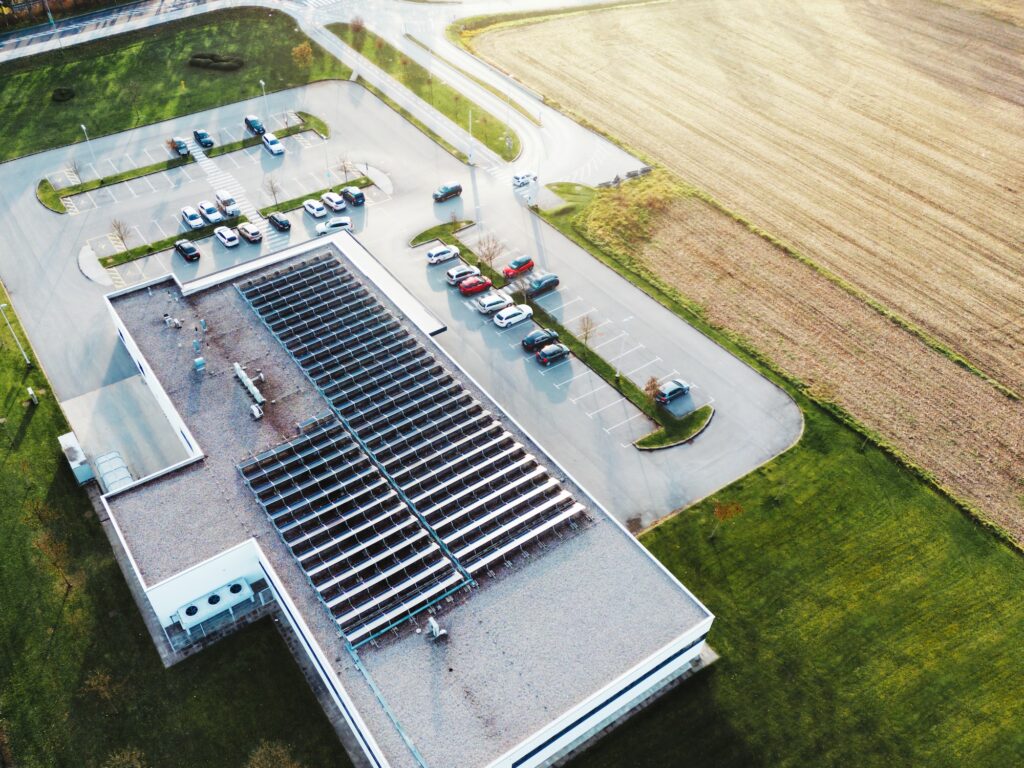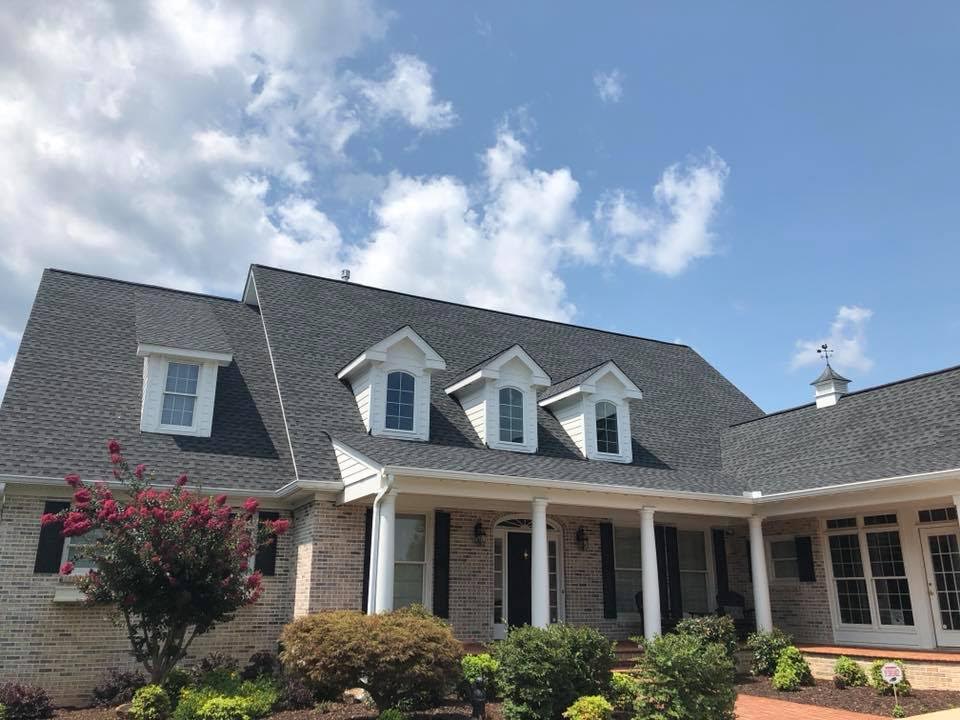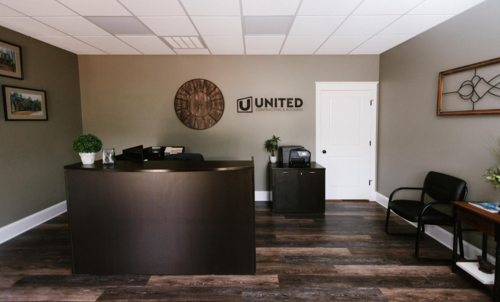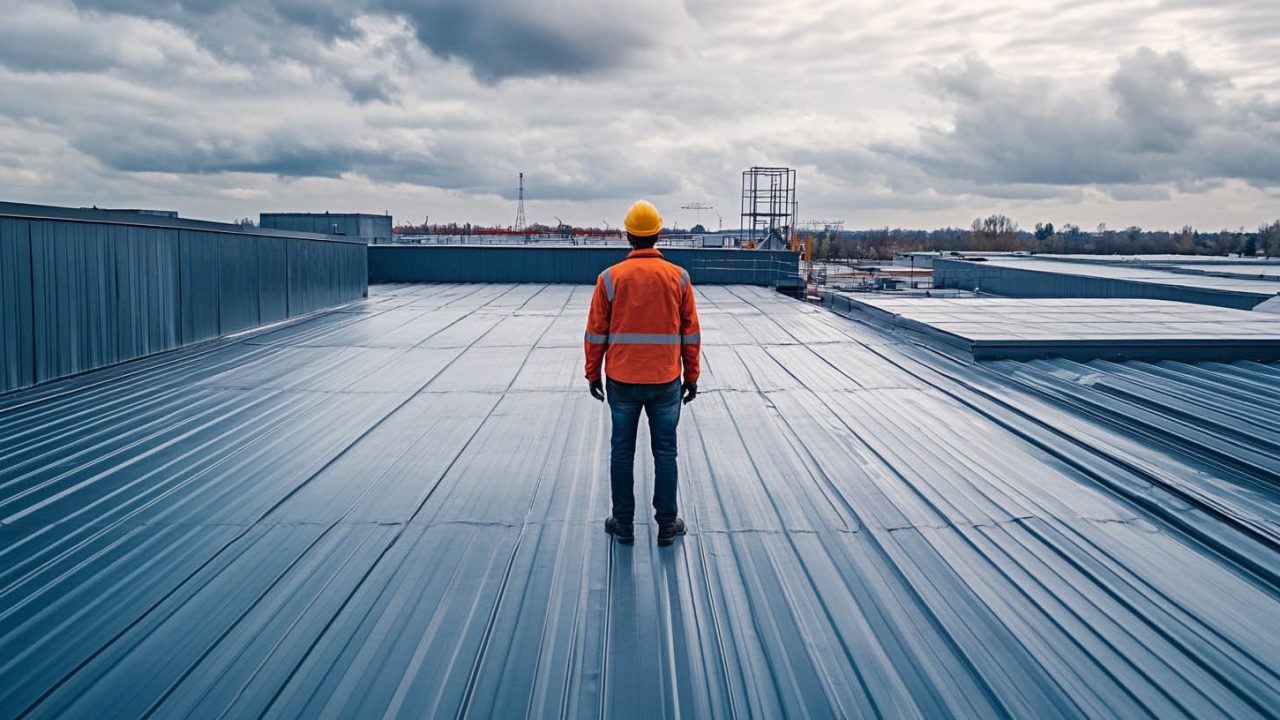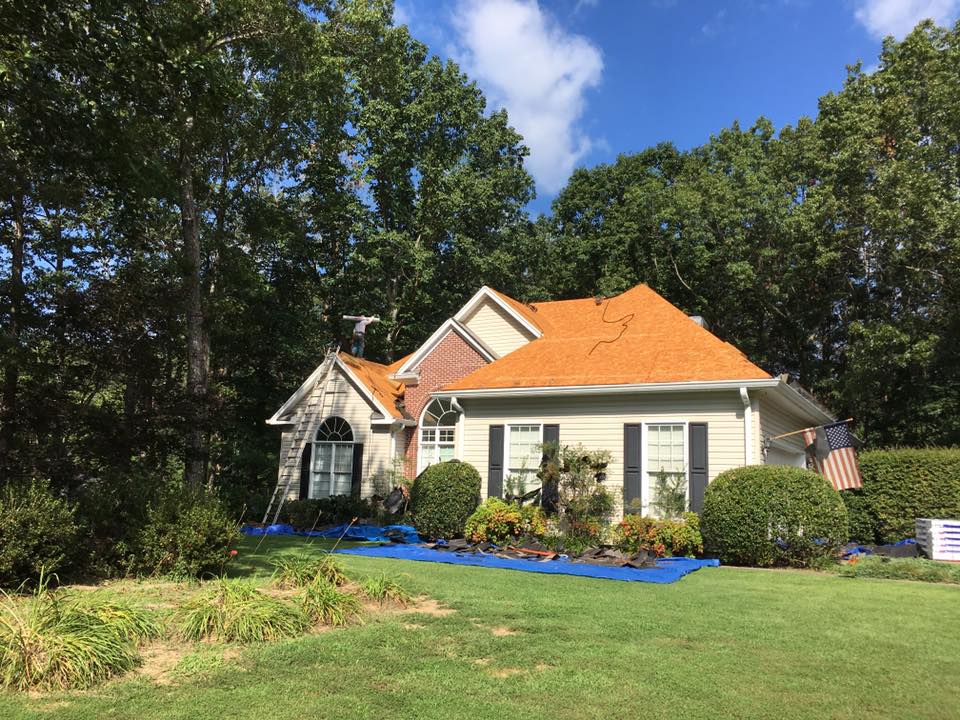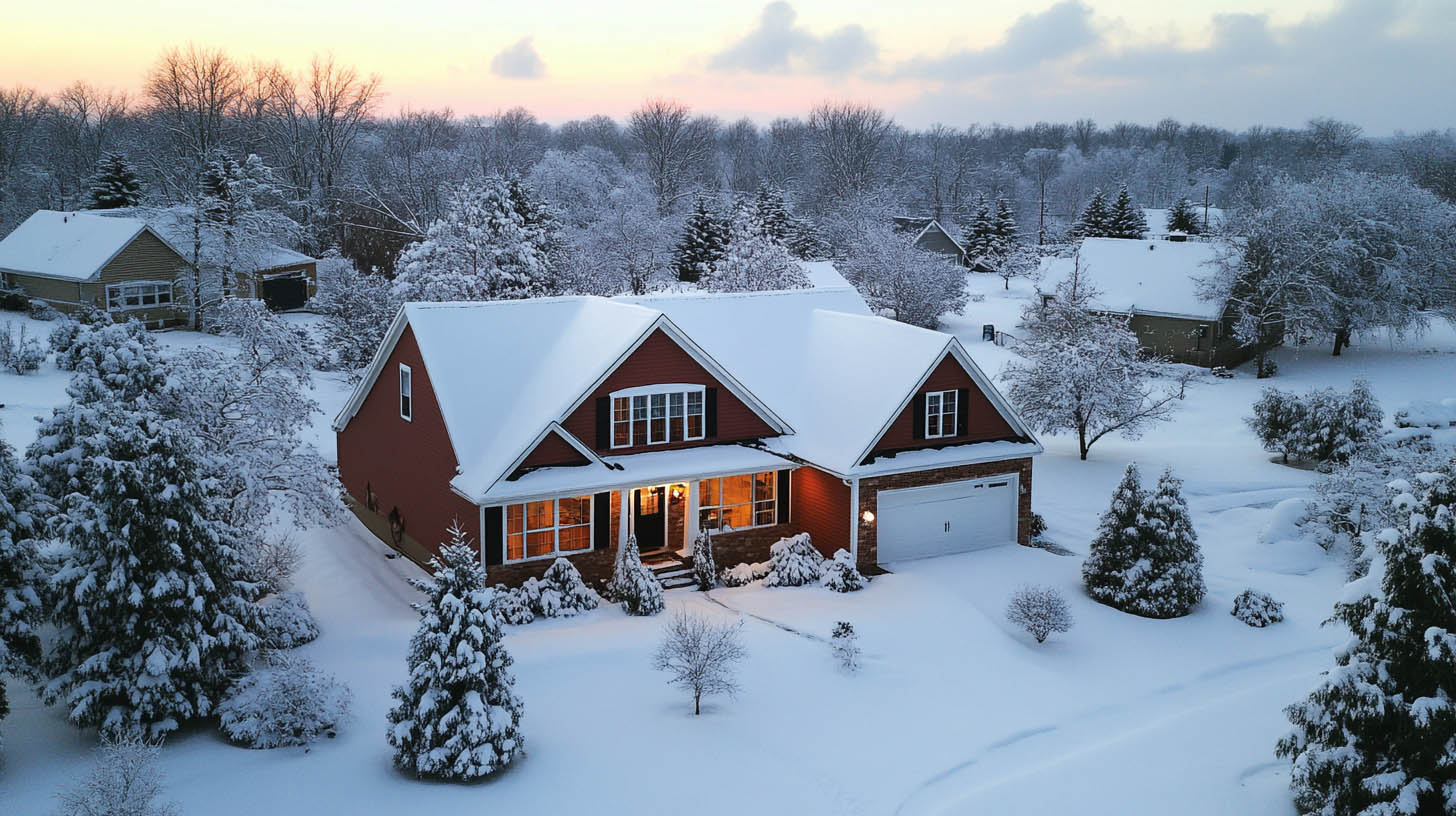Selecting the right roofing material for your commercial building is crucial for ensuring long-term durability, energy efficiency, and overall performance. At United Contracting & Roofing LLC, we understand the importance of making informed decisions about your roofing options. Here’s a comprehensive guide to help you choose the best roofing material for your commercial system.
Metal Roofing
Metal roofing is a popular choice for commercial buildings due to its longevity and modern aesthetic. Available in materials such as aluminum, copper, stainless steel, and zinc, metal roofs offer several advantages.
Pros:
- Durability: Lasts 40-75 years, with excellent resistance to harsh weather conditions.
- Low Maintenance: Requires minimal upkeep and provides UV protection.
- Fire and Wind Resistance: Galvanized steel components offer superior resistance.
Cons:
- High Installation Costs: More expensive upfront compared to other materials.
- Expansion and Contraction: Temperature changes can cause denting and require a proper fastening system.
TPO and EPDM Roofing
Thermoplastic Polyolefin (TPO) and Ethylene Propylene Diene Monomer (EPDM) are single-ply roofing membranes known for their weather resistance and flexibility.
Pros:
- Cost-Effective: One of the cheapest roofing materials available.
- Energy Efficiency: Reflects sunlight, reducing heat buildup.
- Lightweight and Easy to Install: Can be mechanically attached or adhered with adhesives.
- Durability: Resistant to corrosion, algae growth, and UV rays.
Cons:
- Inconsistent Quality: Varies depending on the manufacturer.
- Laminated Top Layer: Can lead to deterioration over time.
- Not Fire Resistant: TPO lacks fire resistance compared to other materials.
SPF Roofing
Spray Polyurethane Foam (SPF) is a highly versatile roofing material that begins as a liquid and expands into a solid foam upon application. This unique property allows it to form a seamless and waterproof roofing solution that effectively adheres to various surfaces and fills in gaps, seams, and cracks. SPF provides excellent insulation, energy efficiency, and resistance to moisture, making it a reliable choice for a range of roofing needs. Its ability to conform to complex roof shapes and provide continuous coverage helps enhance the durability and performance of the roofing system.
Pros:
- Seamless Application: Seals gaps and narrow spaces, making the roof impermeable.
- Energy Efficiency: Reflective top coat and insulation properties reduce energy costs.
- Low Maintenance: Durable with minimal repair needs.
Cons:
- Specialized Installation: Requires precise application and understanding of chemical reactions.
- Weather Limitations: Cannot be applied in cold or wet conditions.
Tar and Gravel Roofing (Built-Up Roofing)
Built-up roofing (BUR) uses layers of tar and gravel to create a durable and cost-effective roofing system.
Pros:
- Fire Resistance: Stone gravel prevents the roof from catching fire.
- Easy to Repair: Simple repair process involving replacing membrane layers.
- Durability: Withstands weather and punctures well.
Cons:
- Lack of Insulation: Provides less flexibility and can lead to mold growth.
- Water Damage: Prone to water-related issues with high installation costs.
Conclusion
Choosing the right roofing material for your commercial building involves considering factors such as durability, cost, maintenance, and environmental impact. At United Contracting & Roofing LLC, we provide expert advice and quality installation services to ensure your roof meets your specific needs. Contact us for professional guidance on selecting the best roofing material for your commercial system.If you want to explore metal roofing, click here.

